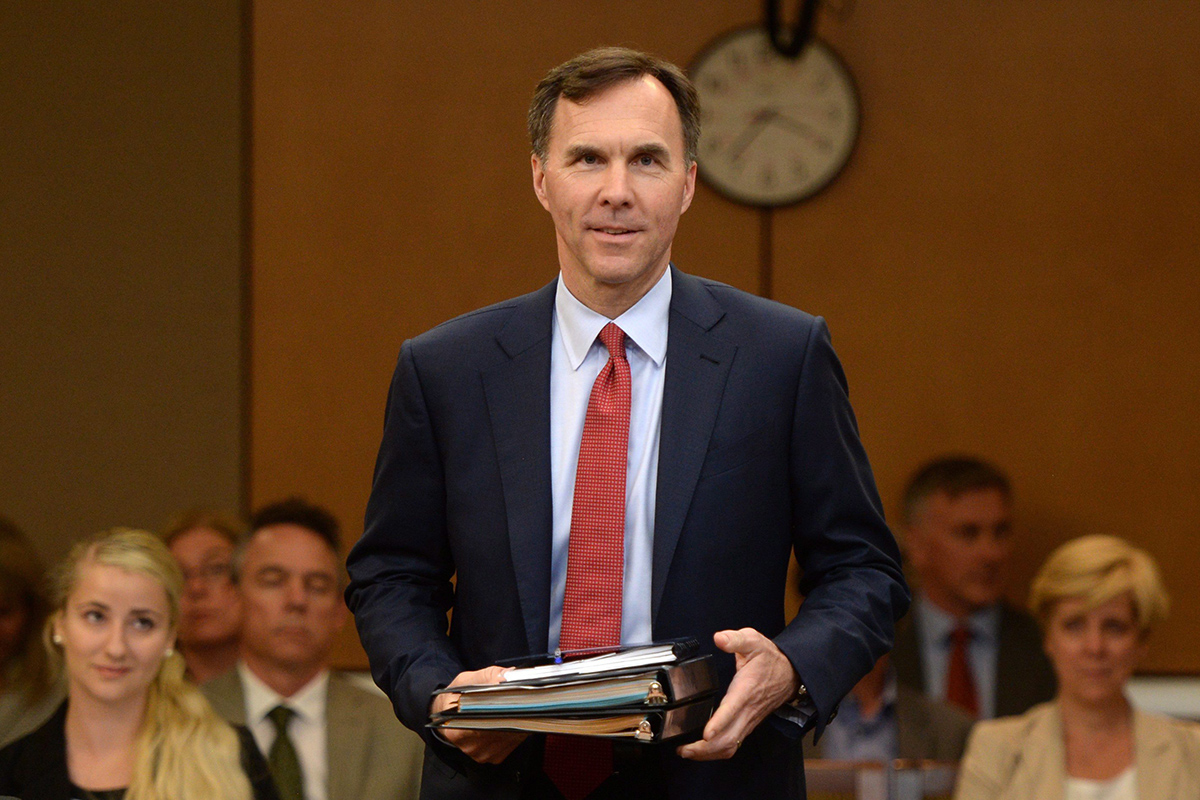OTTAWA – Finance Minister Bill Morneau says the federal government isn’t going to provided extended EI benefits to any more regions of the country, even those that are the on cusp of meeting government requirements for the extra help.

The federal gave extended EI benefits to 15 economic regions of the country, including three — Edmonton, southern Saskatchewan and B.C.’s southern interior — added May 13 after they met government requirements for the extra cash.
At least two more regions, Yellowknife and Thunder Bay, could meet the requirements next month provided their unemployment rates do not drop significantly.
READ MORE: New research raises questions about Liberal plans to change parental leave
Morneau told the Commons finance committee the government wasn’t going to add other regions to its budget bill and by extension the extra EI benefits. He said the regions the government chose to help were those that “had the most significant changes in unemployment.”
“We think these are the right measures to take at a time where we’re experiencing regional differences in our economic situation with some regions experiencing positive situations and some regions as a result largely, but not exclusively, of changes in the price of oil experiencing difficult situations,” Morneau said.
The federal budget banked $582 million over the next two years to add five weeks of regular benefits for workers in qualifying regions, effective in July but retroactive to January 2015.
Long-tenured workers in the 12 regions identified in the budget could also see an extra 20 weeks of benefits, to a maximum of 70 weeks — again, starting this July but retroactive to January of last year.
WATCH: Justin Trudeau announces new EI benefits

He said other budget measures, such as cutting wait times for EI payments to one week from two, extra money for training, tax changes and the introduction of a more lucrative monthly child benefit payment will help people in other hard-hit regions.
“Our view is we’ve made significant differences by taking these approaches and that the other things that we’re doing … will have a measurable impact on their ability to cope at this time,” Morneau said.
The Opposition Conservatives had raised concerns that the design of the new child benefit could lead to problems for divorced parents over how they calculate support payments.
Morneau said the payments aren’t considered income for tax reasons and it replaces two existing benefits, meaning there isn’t a significant change and shouldn’t have any effect on how child support payments are calculated.
“Given that there’s no change, we don’t believe that this is an area of significant discussion. It will not be included in income and will not affect child support payments for divorced parents,” Morneau told the Commons finance committee.
Morneau’s appearance at the Commons committee was the second time in the day opposition parties had a chance to press the Liberals about their spending plans and recently released financial figures that showed the government would run a deficit in the most recent fiscal year.
Figures released Friday by the Finance Department showed a $9 billion deficit in federal spending for March, a figure that put the government on track for a deficit overall of about $2 billion, not including year-end adjustments and a back-dated $3.7 billion spent on veterans benefits.
READ MORE: Edmonton, Sask., B.C. now meet requirements for extended EI, documents show
The Conservatives said the books were in the black when they left office and the Liberals squandered what was left behind through changes to tax system that dropped revenues.
Government spending tends to rise in March as departments scramble to spend funds and wrap up projects, and revenues tend to fall. Morneau told the House of Commons on Monday that what happened this year was the same as what happened in previous years, “only worse.”
“The measures put in place by the previous government led revenues to go down in the end of the year, leaving us with a deficit,” Morneau said during question period.
“We are starting with a deficit left by the previous government and now we’re making efforts to really improve our situation going forward.”
- Life in the forest: How Stanley Park’s longest resident survived a changing landscape
- ‘They knew’: Victims of sexual abuse by Ontario youth leader sue Anglican Church
- Roll Up To Win? Tim Hortons says $55K boat win email was ‘human error’
- Carbon rebate labelling in bank deposits fuelling confusion, minister says



Comments